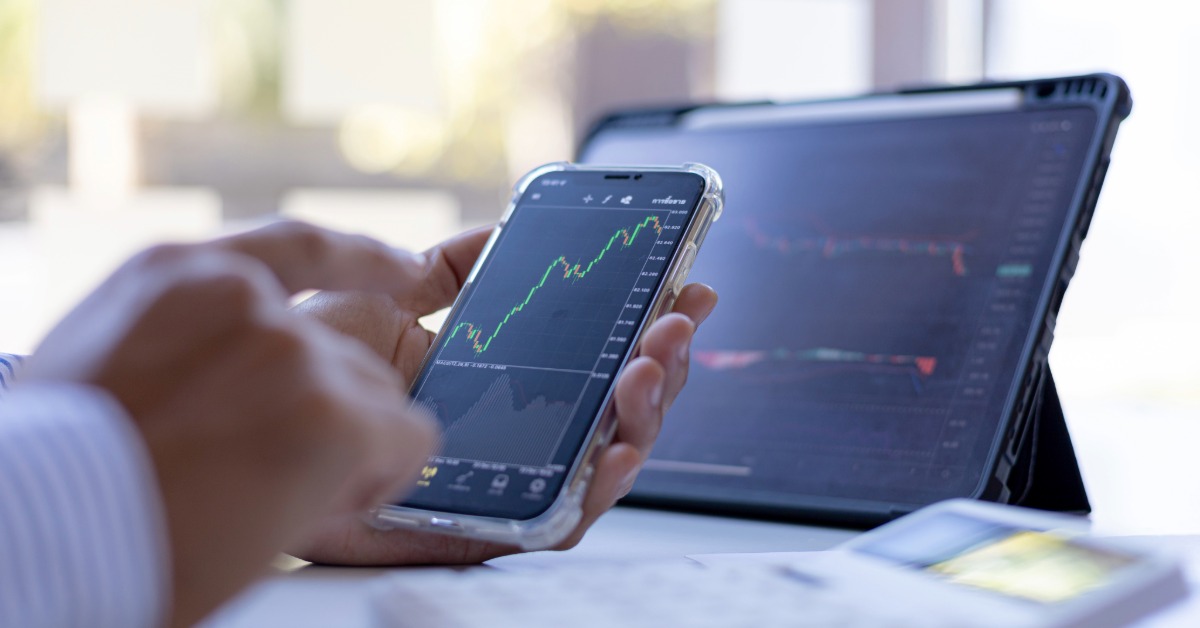Key Takeaways
- Outperform other investors by shifting your focus to inflation-resilient sectors like healthcare and energy.
- Protect your investment portfolio from market swings by adding assets like gold that hold their value during uncertainty.
- Secure your financial future by understanding how global events like sanctions and inflation impact your investments.
- Learn how international sanctions on commodities like oil can directly influence the prices you see at the gas pump.
Investors are currently navigating a stock market impacted by 2 crucial aspects: persistent inflation and rising global sanctions.
While inflation has eased significantly since the COVID-19 pandemic, it remains above most central banks’ comfort zone. That is why many authorities are maintaining high interest rates and discouraging increased borrowing.
On the other hand, sanctions targeting financial networks and key commodities are causing issues like supply disruptions and changing the stock investment landscape in the process. Sanctions and inflation are forcing stock investors to adapt their strategies for better returns. Here’s all you need to know to keep up.
Global Inflation Context
Global inflation is subsiding, but a variety of issues are undermining the pace. For starters, energy prices are still considerably high, primarily due to the ongoing Russia-Ukraine war. Keep in mind that Russia is a significant supplier of energy products, including oil and natural gas. High energy costs often go hand in hand with escalated inflation.
However, global inflation is expected to continue slowing down for several reasons. First, the most authoritative central banks like the US Federal Reserve and European Central Bank are keeping interest rates, increasing borrowing costs and anchoring inflation in the process. Since inflation affects the risk-reward landscape in financial investing, AvaTrade suggests Canadian investors diversify to minimize risk exposure and maximize returns.
The Impact of Sanctions
In recent years, global sanctions have increased, and their impact is palpable. For instance, the US has suspected credit finance that businesses use to facilitate the exportation of products to Russia. The UN Security Council has also recently extended and renewed sanctions, comprising arms embargoes, travel bans, and asset freezes, on Sudan, Somalia, and other countries.
Global sanctions have reduced economic output for many countries affected, including Russia and Sudan. It has also catalyzed the depreciation of currencies such as the Ruble. In addition, sanctions have accelerated the adoption of non-US trade settlements, with many nations switching to yuan-based transactions.
Investor Response
Rising inflation, sanctions, and other prominent issues have had a significant impact on investment. Inflation has eroded investors’ purchasing power and led to sharp declines in stock and bond prices. On the other hand, multiple global sanctions have enhanced geopolitical stability and caused the prices of many assets to swing wildly, especially commodities such as oil and precious metals.
Savvy investors are responding to the issues mentioned above in different ways. Many have shifted their focus to defensive sectors such as healthcare and consumer staples. They are also seeking protection in safer financial instruments, especially gold, which is known to retain value in times of economic uncertainty.
The Bottom Line
Inflation and sanctions are now integral to the investment landscape. The best thing to do now as a stock investor is to focus less on short-term rallies and more on protecting your capital and returns. Start by diversifying your portfolio with stocks from inflation-resilient sectors such as energy, consumer staples, and mining. You should also pay more attention to established companies that can raise product prices without losing consumer interest. Finally, consider adding inflation hedges, such as gold and TIPS, to your portfolio, especially if you want to succeed as a day trader.




